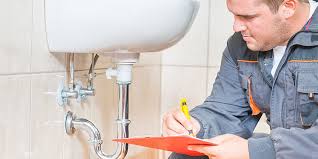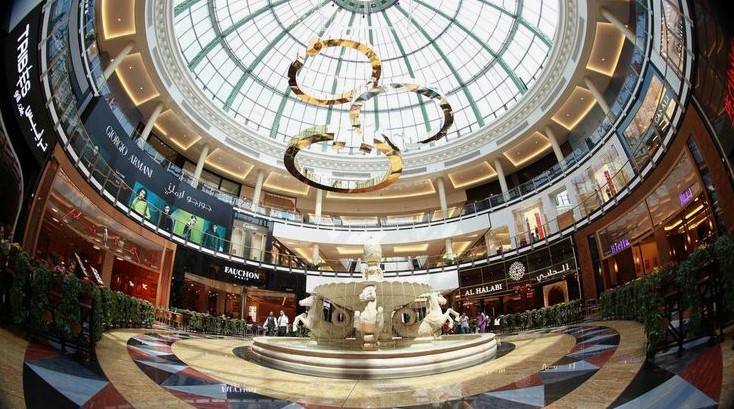Plumbing plays a crucial role in both residential and commercial properties, ensuring a steady supply of water and proper waste disposal. While both types of plumbing share similar principles, they differ significantly in terms of scale, complexity, maintenance, and regulatory requirements. Understanding these differences helps property owners, businesses, and homeowners make informed decisions when hiring plumbing services.
1. Scale and System Complexity
One of the most significant differences between commercial plumbing and residential plumbing is the scale of the systems. Residential plumbing primarily serves single-family homes, apartments, and small buildings, while commercial plumbing caters to large-scale properties such as office buildings, hotels, shopping centers, factories, and hospitals.
- Residential plumbing systems are relatively simple, with fewer pipes, fixtures, and water outlets. The water demand is lower, and usage is predictable.
- Commercial plumbing involves extensive pipe networks, multiple floors, high water usage, and complex drainage systems. Large-scale operations require specialized solutions to manage the high demand efficiently.
2. Water Usage and Demand
Commercial properties experience significantly higher water usage compared to residential homes. This is due to the number of occupants, frequency of use, and the presence of industrial or specialized equipment that relies on water.
- In a residential setting, water usage is relatively low, with standard fixtures like sinks, toilets, showers, and dishwashers.
- Commercial plumbing must accommodate high water demand from restrooms, kitchens, sprinkler systems, boilers, and specialized industrial equipment.
This increased demand requires commercial plumbing systems to have higher-capacity pipes, water heaters, and drainage solutions to prevent shortages and inefficiencies.
3. Plumbing Codes and Regulations
Plumbing codes and regulations ensure that all installations meet safety, health, and environmental standards. However, commercial plumbing projects are subject to stricter and more complex regulations than residential ones.
- Residential plumbing follows local building codes that govern pipe sizing, fixture placement, and general safety standards.
- Commercial plumbing must comply with stringent municipal, state, and industry-specific regulations. These codes dictate water pressure, drainage capacity, backflow prevention, and accessibility features, especially for public restrooms in commercial buildings.
Failure to comply with these regulations can result in fines, legal issues, and costly renovations for businesses.
4. Fixture Types and Durability
Since commercial spaces experience more traffic and usage, the plumbing fixtures installed in these environments must be more durable and heavy-duty compared to those in homes.
- Residential plumbing typically includes standard-grade faucets, toilets, and sinks that are designed for light daily use.
- Commercial plumbing requires industrial-strength fixtures built to withstand continuous and heavy usage. Public restrooms, restaurant kitchens, and industrial wash stations require fixtures that resist wear and tear, corrosion, and vandalism.
Additionally, many commercial plumbing fixtures incorporate hands-free or automatic technology to improve hygiene and efficiency.
5. Drainage and Waste Management
Drainage systems in commercial plumbing are more complex than in residential homes due to the large volume of waste and the types of substances being flushed down the drains.
- Residential drainage typically handles household waste like soap, food particles, and human waste.
- Commercial plumbing must accommodate higher volumes of wastewater from restrooms, kitchens, and sometimes hazardous materials from industrial processes.
Grease traps, sediment filters, and high-capacity sewer lines are commonly found in commercial plumbing to prevent clogs and maintain efficient drainage.
6. Maintenance and Repairs
Commercial properties require regular maintenance and quicker repairs due to the high usage and complexity of their plumbing systems. A plumbing failure in a commercial setting can disrupt business operations and lead to significant financial losses.
- Residential plumbing systems are easier to maintain, with simple repairs like fixing leaks, unclogging drains, and replacing worn-out fixtures.
- Commercial plumbing demands ongoing maintenance, routine inspections, and professional servicing to ensure compliance with safety standards and prevent disruptions.
Businesses often work with commercial plumbing contractors on service agreements to ensure round-the-clock emergency repairs and preventive maintenance.
7. Water Heater Requirements
Water heating needs vary significantly between residential and commercial properties. Homes typically use standard water heaters with tanks ranging from 30 to 80 gallons, while businesses require specialized water heating solutions.
- Residential properties use traditional water heaters or tankless systems for basic daily needs like showering, washing dishes, and laundry.
- Commercial plumbing requires high-capacity water heaters, often involving boilers or on-demand systems to meet continuous hot water demand in restaurants, hotels, and hospitals.
The choice of water heating system depends on the scale of usage, efficiency requirements, and budget.
8. Specialized Plumbing Equipment
Certain commercial properties require specialized plumbing equipment that is not commonly found in residential homes. This includes:
- Backflow prevention devices to protect water supplies from contamination
- Industrial-grade sump pumps for large-scale drainage systems
- Grease traps in restaurant kitchens to prevent clogging and environmental hazards
- High-pressure water systems for manufacturing plants and large-scale operations
These specialized installations make commercial plumbing more technical and require highly trained professionals for maintenance and servicing.
9. Complexity of Installation and Repairs
Commercial plumbing systems are more complex to install and repair than residential ones due to their scale, structural requirements, and regulatory compliance.
- Residential plumbing installations are relatively straightforward, with simple pipe layouts and easy access to fixtures.
- Commercial plumbing involves intricate planning, large-scale pipe networks, and the need for specialized tools and techniques.
Repairs in commercial buildings are often more challenging because pipes and fixtures are embedded in walls, ceilings, and floors, making accessibility difficult. Repairs must be performed with minimal disruption to business operations.
10. Cost Differences
The cost of commercial plumbing services is generally higher than residential plumbing due to the complexity of the systems, the need for specialized equipment, and compliance with strict regulations.
- Residential plumbing is more affordable, with lower material and labor costs for installations and repairs.
- Commercial plumbing requires heavy-duty materials, advanced technology, and expert knowledge, increasing the overall cost of services.
However, businesses invest in commercial plumbing solutions to ensure long-term efficiency, compliance, and safety.
Conclusion
Both commercial plumbing and residential plumbing serve essential functions, but their differences in scale, complexity, maintenance, and cost make them distinct. While residential plumbing focuses on small-scale, straightforward systems, commercial plumbing deals with high-demand, regulatory-intensive setups that require specialized expertise. Whether you need plumbing services for a home or business, understanding these key differences helps in choosing the right professionals and ensuring efficient plumbing solutions for your needs.





